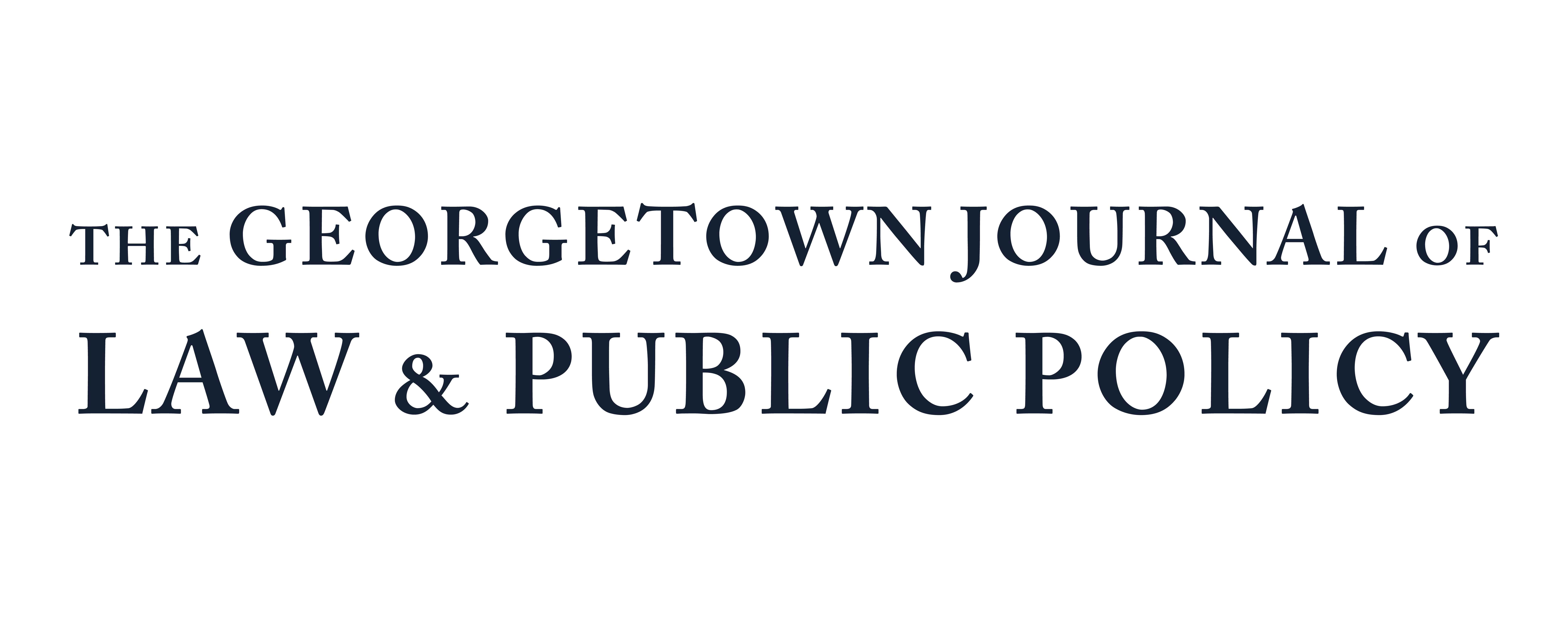Letter from the Editor
Dear Reader, The Georgetown Journal of Law & Public Policy is proud to present the final issue of Volume 21. This special issue contains a series of papers presented at “The Ethics of Effective Altruism and Social Entrepreneurship,” a symposium hosted by the Georgetown Institute for the Study of Markets and Ethics. We are publishing […]
The Moral Status of Beneficence
What do we owe distant strangers? Effective altruists, as well as philosophers, have offered differing views. A demanding answer holds that we are subject to strong moral requirements to provide aid, the satisfaction of which may undermine other values associated with living one’s own life. Another answer, popular among philosophers, is moderate: We are subject […]
Why Ten Percent?
While effective altruists (EAs) spend a lot of time researching which ways to do good are the most effective, historically many have assumed, with relatively little argument, that the benchmark for membership in the movement is a com-mitment to donate 10% of your earnings. This points to an asymmetry between the two halves of effective […]
Effective Altruism, Global Justice, and Individual Obligations
On at least most accounts of what global justice requires, those living in severe poverty around the world are unjustly disadvantaged. Remedying this unjust disadvantage requires (perhaps among other things) that resources currently possessed by well-off people are deployed in ways that will improve the lives of the poor. In this article, I argue that, […]
When We Don’t Know What We Owe
Uncertainty complicates analysis of practical and moral decision making. This paper argues that these problems are acute and underdeveloped in Effective Altruism. The paper argues that some parts of Effective Altruism, as a theory, can be salvaged by improving application of tools in practical reasoning and rational choice (along with some minor shifts in background […]
How to Express Improvements in Animal Welfare in DALYs-averted
Effective altruists (EAs) want to do as much good as possible with the charitable resources available to them. If EAs want to do the most good per dollar spent—that is, if they want to maximize cost-effectiveness—they need a common currency for comparing very different interventions. GiveWell, Open Philanthropy, Founders Pledge, and many other effective altruist […]
Is It All For Nothing? On the Futility Objection to Individual Environmental and Political Action
Swapping your gas-guzzling SUV for an electric car will not make a difference to the overall state of the environment. Since our individual efforts to combat cli-mate change are usually futile, a number of philosophers have suggested that we have no duty to cut our emissions; instead, we have a duty to promote effective environmental […]
Assessing Evidence for Purposes of Effective Altruism
Effective altruism (EA) embraces an evidence-based approach to charitable giving that resonates with the broader evidence-based policy (EBP) movement in medicine, education, and other areas of social policy. EBP holds that decisions about how to produce desired outcomes should be based on evidence of effectiveness from scientific research rather than conventions, intuitions, or personal impressions […]
Saving the World Starts at Home
In The Most Good You Can Do: How Effective Altruism Is Changing Ideas About Living Ethically, Peter Singer tells us that effective altruism is “a philosophy and social movement which applies evidence and reason to working out the most effective ways to improve the world.” What are these ways of improving the world? Helpfully, Singer describes […]

